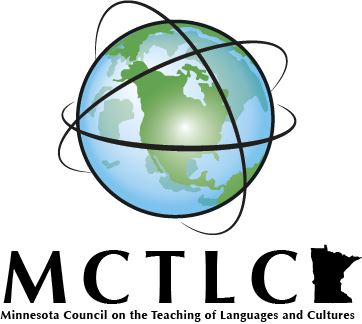Pre-Conference Workshops
The presenter will lead participants through a reading strategy introduced at the Wisconsin Association of Foreign Language Teachers conference. This strategy’s rich application pushes upper division students to make the leap to intermediate literature analysis. It also builds student confidence by using a series of Asking questions, Connecting to previous stories, Tracking down themes, making Inferences, Visualizing and finally having a moment of Eureka! The first pillar of the workshop situates the learning strategy in a framework of knowledge sets including technology, second language pedagogy and content (TPACK). Pillar two will include student video interviews and assessment examples that illustrate past successes of the strategy. Lastly, teachers will have time to execute a design with a selected story from their curricula using Photoshop or MS Word. Check out session examples posted at http://boeckers.posterous.com/cs3-photoshop-and-reading-strategies-active
W2 - Google and Moodle Together Forever, Jennifer Duronio (Technology CEUs available)
This workshop is intended for educators currently using Moodle as their course management system and a working knowledge of Google Docs. I'll show you how to marry the two together for a highly effective language learning page. Bring your laptop, as this is a working session.
The Rassias Method known for its dramatic strategies and rhythmic patterns will be presented by John Rassias as he makes learning about language and culture come alive.Cancelled due to family emergency
W4 - Literacy in the Second Language Classroom, Melinda Stewart (Literacy CEUs available)
Using literacy-based instructional strategies, this workshop will focus on implementing current best practices in reading research and instruction in the second language classroom. We will take a look at guided reading, vocabulary instruction, and specific reading strategies that will help foster higher order thinking at all proficiency levels. The workshop will be presented in English and applicable to all languages, although most examples will be in Spanish.
W5 - The Calendar Method, Alejandro Diaz Andrade and Ginna Schultz
Getting tired of students forgetting their verb tenses? Can you expect your students to use more than ten different verb tenses and phrases in one essay or on one unit test? Come to this workshop to learn how you can set this expectation for your students and they will meet it! The calendar method will get your students to have real conversations in the target language which integrate all the verb tenses learned at once. It is compatible with any textbook. Challenge your students and hold their interest using this technique while recycling, repeating and creating with the target language. The emphasis is on oral proficiency and authentic use of the language. This approach provides many opportunities for differentiation and addresses students' diverse learning styles. It also sets the expectation that students develop the capability to use many verb tenses together and that they are creative with the language. It is an engaging and effective method which the presenters have been using for over ten years in their respective classrooms to teach all levels of Spanish. Curious about this method? Has it been difficult to start using it in your own classroom? We have offered one hour sessions at conferences in the past but it did not give us enough time to explain the specifics of the Calendar Method. During this workshop, participants will 1. Learn the basics of the calendar method 2. Go over all the calendar questions (different verb tenses and phrases) 3. Create their own calendars using vocabulary from their textbooks that they can incorporate into their curriculum upon returning to their classrooms 4. Learn about more than twenty different engaging activites to use with their students to practice the calendar method 5. Design practice drills and tests while learning how to choose the correct verb phrases and tenses for each level 6. Learn how to evaluate student progress using the calendar method with both oral and written assessments 7. Find out how to differentiate their instruction effectively and address students’ different learning styles using this method 8. See student work from two different schools showing the effectiveness of the Calendar Method and the different formats you can use to practice it 9. Receive a packet with many calendar method materials We ask that participants bring their textbooks or vocabulary lists from each chapter to use in the creation of their calendars. It is also helpful to have a copy your scope and sequence for the classes you teach. This should explain which grammar topics you cover in a given level and in what order you cover them.

